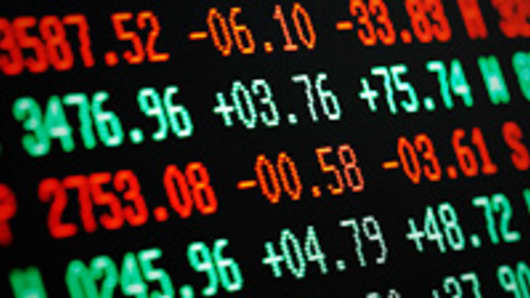Meanwhile, shares in BATS itself, which trade on Nasdaq, were halted less than an hour later. The stock was already off 4.7 percent at $15.25.
Late Friday, BATS released a post-mortem about what exactly happened, blaming a software bug for the problems.
At 10:45 am, a "single match engine" that handles trading in stocks starting with symbols ranging from "A" to "BF" "encountered a software bug related to IPO auctions, which rendered open customer orders in this symbol range inaccessible," the company said.
That's why trading in shares of Apple also went haywire — its ticker symbol "AAPL," falls in that range.
Additionally, BATS said, the IPO auction for its own stock, under the symbol "BATS," did not successfully print, so trading of the stock on the BZX Exchange "did not begin as expected."
BATS said it immediately requested that all quotes in the affected range for BZX Exchange be removed from the tape. But at around 11 am, BATS trading desk noticed that the BYX Exchange was "continuing to witness crossed markets from stale quotes on UTP symbols on the BZX Exchange."
"The stale BZX quotes seen in BYX were the cause of three clearly erroneous trades in AAPL, which were cancelled between 11:49 am and 12:34 pm ET," BATS said.
Prior to noon, BATS said, it notified members that the system would be available for trading in all symbols in that affected range except BATS by noon — and trading in those other symbols did resume at noon.
All this occurred during the company's first dayon the public trading block, and as it undergoes a Securities and Exchange probe into possible high-frequency trading irregularities.
The company said it was preparing for a possible reopen of BATS in afternoon trading but ultimately made the decision to not reopen the symbol BATS.
Late in the afternoon, BATs announced that its stock wouldn't reopen for the day and that all trades following the IPO had been canceled. After the market closed, the company announced that it had withdrawn the IPO entirely.
In sum, not a good day for the company, and not a good day for a market struggling to regain public confidencefollowing the Flash Crash of nearly two years ago. The Flash Crash saw the Dow Jones industrial average tumble nearly 1,000 points in a matter of minutes and still has not been explained fully by regulators.
In fact, it was post-Flash Crash reforms that set up the type of circuit breakers that halt trades as unusual as the Apple move.
"This is a market issue that should be addressed. High-frequency trading has changed the game and is part of the reason why, among other things, that retail has stepped away from the market," says Rick Bensignor, chief market strategist at Merlin Securities in New York.
"Investing nowadays is nothing like it was 10, 20, 30 years ago," he adds. "Despite the fact that high-frequency traders do provide some liquidity, the cost to the marketplace is higher net-net than it is a good."
Reaction on trading floors ranged from ambivalence to anger, with many wondering how it would affect the future of BATS.




